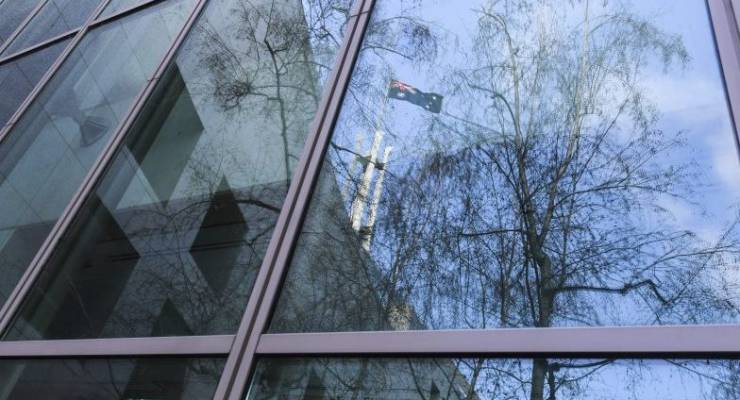
Australia has hit a new low when it comes to corruption, according to Transparency International’s annual Corruption Perceptions Index (CPI) released this week. It considers both rates of public sector corruption and the presence of systems to prevent corruption.
Corruption is an issue close to our hearts here at Crikey, and Australia’s failure to prioritise fighting corruption is a scourge on our democracy.
To make matters worse, there was a time, not so long ago, when we up there with the best…
2012
The first published CPI had Australia in a healthy position, ranked in seventh place with a score of 85 (Denmark, Finland and New Zealand were ranked No. 1). At this point, Australia and Norway were considered equals in the fight against corruption. Unfortunately this is where the country’s corruption trajectories diverge. The UK and the US held scores of 74 and 73, and ranks of 19 and 17 respectively, placing them at the lower end of developed nations.
2017
By 2017, Australia’s score had slipped dramatically to 77, leaving us with a ranking of 13 (New Zealand was still sitting in first place). Our decline was largely attributed to a failure to continue to develop systems for preventing corruption. While there was some variance in the intervening years, Norway held its score of 85. The US score remained mostly unchanged, but significant efforts by David Cameron’s government to introduce anti-corruption mechanisms saw the UK’s score rise to 82 and its rank to eight.
2021
In the current index Australia has continued to decline, dropping a significant four points to reach its lowest score recorded of 73, and lowest ranking of 18 (Denmark, Finland, and New Zealand are first — well done to our neighbours across the ditch).
Australia is now on the precipice of leaving the top 20. It has failed to make serious strides to prevent corruption, such as introducing an effective federal anti-corruption commission. Alongside the prevalence of various rorts and Gladys Berejiklian’s appearance before the NSW ICAC, the past 12 months have been a low point in Australia’s fight against corruption. Meanwhile Norway holds strong at 85 points, and is ranked fourth.
The US has slipped significantly, with a downturn that began during the Trump administration in 2017, and has continued to its current low point: a score of 67 and a rank of 27. This ranking places them below the United Arab Emirates. Similarly, much of the progress made in the UK has been undone amid Brexit and the Pandora Papers — although it’s still doing better than Australia at 78 points and a rank of 11.
According to Transparency International, 27 countries hit historic lows in their score on the 2021 survey. Nice to know we’re not alone.








Note that the current bunch of corrupt muppets have been on the treasury benches for the whole period reported here. And the trajectory has been persistently one way. That’s why happens when politicians with zero integrity see corruption as mere politics with no real political downside. I do hope is is time to prove that corrupt assumption wrong.
Is it just chance that the Nordic states (Finland, Sweden, Norway, and Denmark) consistently rank in the top 10 nations in the Transparency International Corruption Index? In order words, the people in these nations most trust/believe that their governments are the least open to corruption and most open to transparency and accountability in their use of money and keeping competing influences/lobby groups at bay in the formation of policy. That is they believe the main aim of government is improving everyone’s overall well-being and not just those of certain interest groups including politicians themselves.
Nordics insist that certain ‘things’ are in place to protect democratic ideals. For example, Finland rather than support a large private school sector instead attempts to make every school a quality school so that choice of school becomes largely an irrelevancy. They do things for the good of society overall – ‘things’ that our political self-serving clowns only give lip-service to.
One of the reasons why the Nordic nations (Finland (70%), Norway (78%), Sweden (87%), Denmark (85%) and Iceland (81%)) are consistently listed in the top 10 happiest nations in the world is their trust in government and public institutions to do all they can to improve the life chances of all citizens and their belief in the absence of corruption in such bodies. This is reflected by the percentage of eligible voters – shown above in brackets, who turn out to vote in these nations shown above for their most recent national elections. The range of voters who turn out for elections ranges from 70% to 87%, not forgetting that voting is not compulsory in these nations it simply is regarded as a civic duty engrained in them by the education system to serve as a reminder to government that they are under scrutiny. By comparison in Australia 91% of eligible voters voted in a situation where voting is compulsory in the USA – also non-compulsory it was at 65% and the UK at 68%
The other interesting point is that all the Nordic countries are far more economically and socially equal places to live in than Australia, have far less people living in poverty and far less child poverty, and unions that still possess some power and are able to protect the living standards of workers. In other words they are very much concerned with overall societal well being than are Australians who are brain washed to aspire for more for themselves and leave others to their own devices.
This also consistently sees the Nordic nations ranked as the happiest nations on earth.
Happily holidaying in Oz
Probably in winter in Oz.
A friend who had been a dual Finn/ Australian citizen working in Finland for nearly 40 years ago, got us to take a photo of her in t shirt , shorts and hat mid-winter in the everglades, with the waterlilies blooming, at the top of the Noosa River. She flicked it back to Finland with the caption “Mid-winter”.
Not chance.
I think a lot of your points are valid contributing factors
They are social democracies, and porud of it. They pay high taxes, but have services provided by govt – as we used to do (at lest to a greater extent) before the Neocons started lowering taxes and cutting services and privatising everything that moves.
Yes. The other issue with Nordic nations, one not often talked about is that they are largely monocultural, and are having trouble coping with influxes of immigrants. I really hope that their systems are capable of withstanding the pressures this brings. In no way am I suggesting that we should go back to being White Australia, just pointing out that the good comes with the bad. It seems to me it’s kind of like comparing elite private schools with public schools in western suburbs.
This is how we got so low. In 2006 the federal threshold for public disclosure of political donations was $1500. Prime Minister John Howard decided that was too low and increased it to “more than $10,000”.
A Pork Barrel allowance?
A donation in each branch each month of $10,000 doesn’t need to be reported.
Would that be termed the “Pay for play system?”
There seems to be a correlation the smaller the population the less likely for endemic corruption- so as Australia’s population grows the more the Federal government gobbles up State powers. – Covid has suddenly woken up the sleepy States and reasserted their correct governing powers – now to keep this rolling – the States resume aged care control, the States resume their control over medical manpower, the States resume their control over Disability sector , the States resume their control of the local Charity sector, and the list goes on – then we will go up in the international corruption ladder.
The further away decision making is from the population [ie Canberra] the greater the opportunity for corruption.
The ultimate should be states resuming taxation powers. Let the Feds sit back and beg for once.
The level of government which has the least checks and balances is in local government, where by the time they come to the attention of any state based anti-corruption body the smell is almost overpowering.
Then comes the federal government, which is a pay as you do, donor system, with no significant anti-corruption body and now with a completely shameless grasping mob in charge, using the political capital bought by John Howard as he wasted our 30 trillion dollar boom, and so, of course we a sliding down the ratings faster than an ice cube off a hot plate.
Am scratching my head trying to figure out what happened in 2013 when our ranking began to slide. I do recall there was an election & change of government. Did anything else happen…?
The rise of the greed of the Neo-con’s who missed all the lolly water flowing from our pockets and into theirs courtesy of Howard.